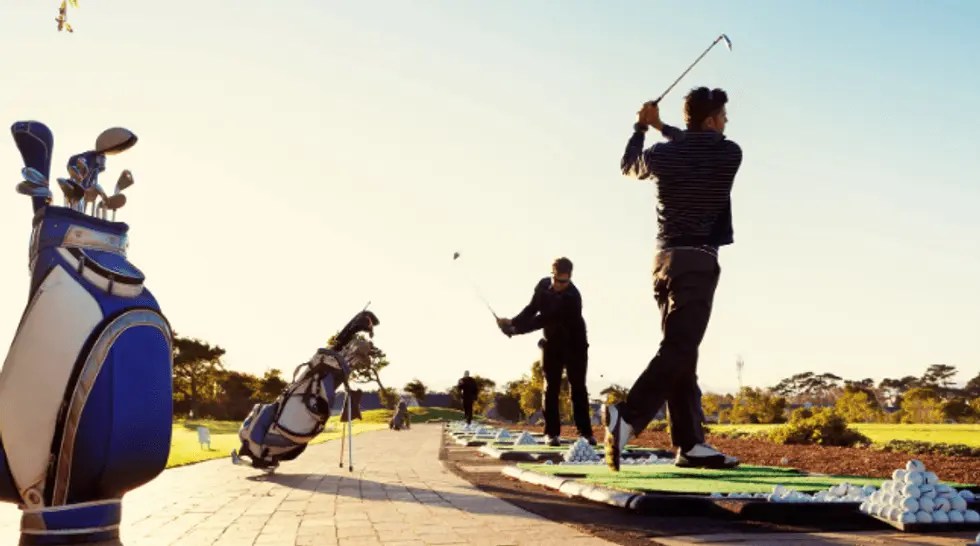Fact: The movie business is run by straight white guys.
It’s not just a feeling, it’s a well-documented phenomenon.
According to a study released by the Annenberg School for Communication and Journalism at the University of Southern California, around 75% of the top executives at film studios are men. And only 3.4% of all film directors and 10.8% of film screenwriters are women. Oh and just in case you forgot, women make up about 50% of the population.
Just a few of the middle-aged white guys making decisions about the movies you see.
And while Hollywood’s sexism problem is all over the news these days, many people forget that there are women who’ve been in this fight for close to 40 years.
In 1979, six women filmmakers put their careers on the line and took on sexism in the industry.
Dubbed, “The Original Six,” these directors (Susan Bay Nimoy, Joelle Dobrow, Nell Cox, Dolores Ferraro, Vicki Hochberg, and Lynne Littman) pushed for groundbreaking research on the number of women behind the scenes in filmmaking. Their findings eventually lead to a lawsuit against Warner Brothers and Paramount in 1983.
The suit was dismissed in court in 1985, based on counterclaims from the studios. (The studios said they weren’t in charge of all the hiring decisions and couldn’t be accused of discrimination.)
Despite the setback, the lawsuit started a conversation — one that’s been happening in whispers and screams for decades.
So what do The Original Six have to say about the current state of Hollywood? Plenty.
Four of the women, Dobrow, Cox, Littman, and Hochberg, sat down for an Ask Me Anything (AMA) session on Reddit. They sifted through dozens of questions (and thousands of comments from redditors who refuse to believe sexism exists) to give their thoughts on the industry.
Whether you’re in the biz or you just catch movies on Netflix, the women delivered five truths on equality, Hollywood, and social justice that everyone should hear.
1. The fight for equality may be won in waves, and that’s OK.
This isn’t as simple as “women directors now, everyone else when the time is right” because it’s not just representation behind the camera. Strong characters and role models in film are helping to shift the momentum too.
“Victoria here: I am going to speak about role models in movies. We now have Katniss who courageously defends her people with a weapon, Ray [sic] who can pilot a space ship better than Han Solo, and Furiosa who deliberately goes off track to protect other women. There is no way a young girl watching these films will accept that she can’t do something like direct movies. I can’t wait to see the current ten year olds when someone tells them that.”
A fan poses with a wax figure of “The Hunger Games’” Katniss Everdeen.
2. Don’t get mad. Get mad and creative.
Half of film school grads are women but less than 2% of the top-grossing films of 2013 and 2014 were directed by women. That may be a discouraging disconnect, but the tide is shifting toward scrappy, creative producers, directors, and writers.
Take 31-year-old jill-of-all-trades Issa Rae. She developed her own web series, “Awkward Black Girl” in 2011. Her show caught the attention of Pharrell Williams and other influencers. She’s now working on a comedy pilot and recently joined forces with HBO on an opportunity to give other traditionally underrepresented creatives an opportunity in the television industry.
“Victoria here: The world has changed. But basic truths remain. Change happens when the haves are forced to share. That is brought about in many different ways: Constant protest, demanding accountability, legal assaults. Entry level positions (episodic tv) are still very bad for women. Make your own film and be your own Hollywood via your cell phone (camera) and computer (editing and distribution). Just remember- you are supported by all woman of good will.”
Rae at the 2016 Essence Black Women In Hollywood awards luncheon.
3. Your cause may be important, but it’s not always the most important.
When a redditor asked if women directors should push the UN Commission on the Status of Women to help them achieve 50/50 representation in Hollywood by 2020, Littman effectively said, “pump the brakes.” In the scheme of things, this effort is about women finding fulfilling creative work, a drop in the problem-bucket when women are being killed, assaulted, and disenfranchised around the world. It doesn’t mean you stop trying, it just means other victories are life and death, so this one may not be a priority for everyone all the time.
“Lynne here: Among Chris Rock’s most brilliant comments on the Oscar telecast: ‘When your gramma is swinging from a tree, don’t worry about who won best cinematographer…. etc.’ The UN Commission should be concerned with saving women’s lives, ending honor killings, female mutilation and voting rights. AND … 50/50 by 2020 is Science Fiction.”
Demonstrators protest violence against women on International Women’s Day.
4. Hey dudes, you have a part to play in this too.
It’s not solely up to women to dismantle systemic sexism. I’ll say it again for the good of the group: It’s not solely up to women to dismantle systemic sexism. Allies are vital!
One redditor highlighted director/producer J.J. Abrams who said ahead of his next projects, he wants agents to send him lists of directors, writers, and producers that better represent the true makeup of the country.
Not surprisingly, The Original Six are totally on board with Abrams and any other male allies who believe in the cause.
“Lynne here: I think it’s GREAT! Doesn’t matter how we get there. Creative producers with power eliminate the middle-men — they can hire us directly. Bravo!”
J.J. Abrams speaks at South By Southwest.
5. Want to fight for equality? Stir the pot and help other women.
When asked what the most important thing women could do to improve equality, Hochberg said disruption and connection are paramount.
“Victoria here: The most important thing for all of us to do is to NOT accept the status quo. Also, women must help other women. Women who can, must hire other women. Also, push for diversity casting.”
A toast among guests at Glamour’s Women Rewriting Hollywood Lunch at Sundance.
Though The Original Six are still working as creative professionals and fighting for equality, last year the federal government picked up where they left off.
The Equal Employment Opportunity Commission began interviewing women directors last fall to see what, if any, course of action they should pursue to ensure these large production companies comply with the Civil Rights Act. On paper, it looks like the studios may be breaking Title VII, which prohibits employers from discriminating against employees on the basis of sex, race, national origin, or religion.
There’s more to come in this case, but whether the government intervenes or not, there’s a lot we can do to support and encourage women-led projects.
Seek them out. Buy tickets. Share great work. Together, we’ll win.


































